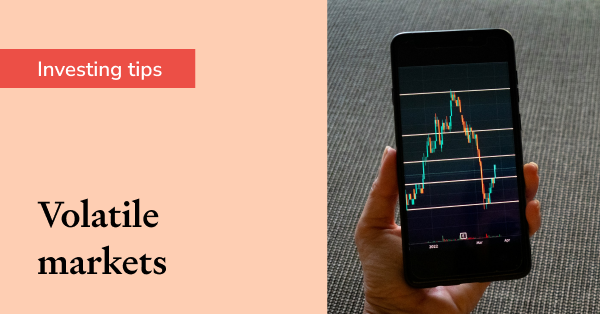This earnings season was not like the others
Volatility may have made way for quality opportunities and overvalued market darlings.
This earnings season was not like the others.
Our Fair Value Estimates (FVE) indicate what we believe is a share’s intrinsic value over the long term. It allows investors a comparison point to the share price to identify overvalued and undervalued shares.
Reviewing changes to our fair value after reporting seasons shows where our analysts were pleasantly or unpleasantly surprised with results. This reporting season, we’ve raised Fair Value Estimates for over 40% of our coverage. This is slightly higher than average in recent reporting seasons. But downgrades also ticked up. Our analysts have cut Fair Value Estimates for 14% of businesses.
It’s a meaningful increase, though not completely out of line with recent reporting seasons. What was surprising was the meaningful uptick in share price volatility.
Approximately halfway through earnings, the standard deviation of share price changes on results days was about 7%.
That was well below February this year and August last year. But by Friday the 29th of August, volatility spiked. In the week prior, the standard deviation of price changes on results day has exceeded 10%.
Unusually, volatility wasn’t confined to the small caps. It is not unusual to see small caps with limited trading volume swing 20% or even 30%. What is different about this earnings season is we’re seeing this spread to blue chips.
The largest negative market reactions to announcements included CSL and James Hardie.
Lochlan Halloway, Morningstar Market Strategist acknowledges that these results were disappointing. Although failing to meet expectations, the market reactions may not be justified. Increased volatility may present a fertile breeding ground for investors looking to profit off overreactions to short-term earnings results.
Below are three stocks with large price movements during earnings season along with our analysts’ thoughts on whether these market reactions were justified.
CSL (ASX: CSL)
- Moat Rating: Narrow
- Fair Value: $305 per share
- Star Rating: ★★★★
A spin-off, a share buyback, big job cuts, slower than expected revenue growth, and a big jump in profits. CSL investors had a lot to digest this earnings season.

Markets weren’t impressed with CSL’s announcement. The shares dropped 17% on the day of the announcement. Our analyst Shane Ponraj attributed the price drop to concerns that the job cuts will hinder revenue growth. Shane also saw positives in the report.
For one, he says that simplifying the business could have its perks.
Earnings and guidance met our forecasts, but with lower sales growth than expected. With the firm cutting 15% of its staff, largely in Research & Development, we are less positive on long-term plasma revenue growth and cut our group revenue forecasts by 5% on average.
We cut our fair value estimate for narrow-moat CSL by 6% to $305, with CSL. However, we believe that the market reaction was not justified. Shares are undervalued as we expect margins to rebound on efficiency initiatives yet to flow through.
Life360 (ASX: 360)
- Moat rating: No Moat
- Fair Value estimate: $21 per share
- Star Rating: ★
Life360 reported strong second-quarter results with sales growing 36% compared to the same period last year driven by 38% growth in core subscription revenue. The firm also raised its guidance and announced that its founder CEO Chris Hils will step aside into the position of Executive Chair.

There was plenty for investors to digest but the reaction was positive. Life360’s market darling status carries on for now with shares up by more than 13% after the update.
Our analyst Roy Van Keulen raised his Fair Value estimate by 5% after factoring in the company’s updated guidance but thinks the shares remain overvalued.
Life360 has achieved impressive user retention, especially in the US on iOS. We expect this to continue especially in non-US markets and on Android. First-month user retention in the US has reached 70% since 2021 from around 60% during 2018. By comparison, its international first-month retention reached only 45% by 2023 from around 30% during 2018.
We believe international markets have a less safety-focused culture compared with the US, which could bring lower retention. However, we expect further convergence of product features and offerings to result in a narrowing of the gap.
We increased our fair value estimate for Life360 by 5% to $21 following upgraded guidance. At the current share price, Life360 screens as materially overvalued. We believe the market is over extrapolating growth in advertising revenue.
AGL Energy (ASX: AGL)
- Moat rating: No Moat
- Fair Value estimate: $12 per share
- Star Rating: ★★★★
AGL’s underlying profit of $640 million was in line with our expectations but the shares fell around 13%. Morningstar Senior Equity Analyst Adrian Atkins thinks this was due to softer forward guidance on account of higher operating costs and cheap energy supply contracts coming to an end.

While Adrian sees the roll-off of cheap coal and gas contracts as a long-term headwind, he thinks the sell-off was overdone. At recent prices of around $9.20 per share, AGL traded roughly 25% below Adrian’s estimate of Fair Value.
AGL Energy’s fiscal 2025 underlying net profit after tax (“NPAT”) decreased 21% to $640 million on lower retail margins caused by cost-of-living pressures, lower wholesale electricity prices, and higher gas costs. Dividends also fell 21% to $0.48 per share, fully franked.
*All data is at 1 September 2025
Terms used in this article
Star Rating: Our one- to five-star ratings are guideposts to a broad audience and individuals must consider their own specific investment goals, risk tolerance, and several other factors. A five-star rating means our analysts think the current market price likely represents an excessively pessimistic outlook and that beyond fair risk-adjusted returns are likely over a long timeframe. A one-star rating means our analysts think the market is pricing in an excessively optimistic outlook, limiting upside potential and leaving the investor exposed to capital loss.
Fair Value: Morningstar’s Fair Value estimate results from a detailed projection of a company’s future cash flows, resulting from our analysts’ independent primary research. Price To Fair Value measures the current market price against estimated Fair Value. If a company’s stock trades at $100 and our analysts believe it is worth $200, the price to fair value ratio would be 0.5. A Price to Fair Value over 1 suggests the share is overvalued.
Moat Rating: An economic moat is a structural or competitive advantage that allows a firm to generate attractive long-term profits. Companies with no moat are considered to lack long-term competitive advantages. Companies with a narrow moat are those we believe are more likely than not to sustain attractive profits on average for at least a decade. For wide-moat companies, we have high confidence that attractive profits will persist for 10 years and are likely for at least 20 years. To learn about finding different sources of moat, read this article by Mark LaMonica.
If you would like Morningstar’s insights into your inbox, sign up for the free newsletter.
More from Morningstar:

Turn market volatility into opportunity with Sharesight
Stay confident in volatile markets and turn uncertainty into opportunity using Sharesight’s suite of future-focused tools.

Sharesight product updates – January 2026
Our latest updates include Abu Dhabi exchange support, enhanced dividend insights, overview page refinements, mobile app improvements and more.

2026 market outlook: Expert insights on risks, rates and opportunities
We talk to industry experts about their expectations for markets in 2026 — from inflation and interest rates to market opportunities, the AI bubble and more.